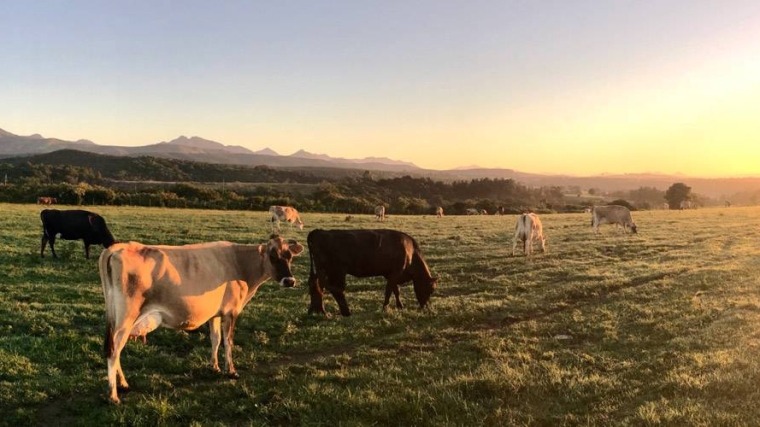
By Angus Kebbell
This week I am talking with dairy farmer Roger Lumsden to find out how technology is implemented into his farming business and what impact this has.
His is a farm, well connected into technology to ensure his productivity and production systems remain efficient and competitive.
His enterprise is proof that farmers have no problem with 'change', even rapid change. But it is 'uncertainty' that his business struggles to manage. Weather uncertainties can be tolerated, but the sudden one-off uncertainties from Wellington policymakers risk that commitment to investment in improvement
Roger is a farmer doing all the right things. He is passionate about his farm and proud to be an intergenerational custodian of the land.
His farm now relies on signals that can be driven from the apps on his mobile phone. It means he is connected all the time
His is a dairy unit that utilises auto-drafting in the dairy shed, and utilises in-bale identification. He has cameras in the shed for heat detection, and monitoring body condition of his cows.
That shed WIFI also allows him to use his HALO system to monitor milk flows and water flows to ensure they remain efficient, and sends text messages when out-of-standard conditions arise. The same system controls the irrigator and the effluent spreader.
And his tractor and spreader are GPS controlled to ensure accurate application of both fertilizer and pasture feed. In fact, he also has scales on his feed-out wagons.
All his cows have a DNA profile, not only ensuring he has precise and up-to-date records, bur also to help in his transition to an A2 herd, a project that takes many years.
The next step is halter collars for each cow.
Precise and controlled farming techniques like those on the Lumsden farm contrast with the assumptions made in the Climate Change Commission report on what farmers need to do. Their draft report raises more questions than answers says Lumsden, and those working the land wonder if many of them are the right questions. They have intimate data about their own impact on the land, the effect of change, and the ability to drive change for good, but the Commission seems to ignore the progress being made more recently by making comparisons with years that farmers have long moved on from.
Listen to the podcast for the full interview with Roger Lumsden.
Angus Kebbell is the Producer at Tailwind Media. You can contact him here.
3 Comments
Hook, I have read more about the (non)taxation of aviation fuel. It seems there was a convention in Chicago in 1944 whereat the attendees agreed to not tax international aviation fuel. There are many strands descending from this that make collecting any sort of levy from international air travel very difficult, and therefore posing difficulties making international travelers responsible for their emissions. My fear is that other, less difficult sectors such as agriculture will become easy targets and find themselves being hammered accordingly.
You're quite correct when you say less difficult sectors will be targeted - it's the NZ Govt MO. With housing it'll be investors, with Carbon taxes it'll be Ag. Successive govt's always go after the sectors that have fewer votes overall. If Govt wanted to reduce transport emissions they could quite easily reintroduce "carless days" - they won't though, better to hammer the industry that pays NZs bills but has few votes





We welcome your comments below. If you are not already registered, please register to comment.
Remember we welcome robust, respectful and insightful debate. We don't welcome abusive or defamatory comments and will de-register those repeatedly making such comments. Our current comment policy is here.